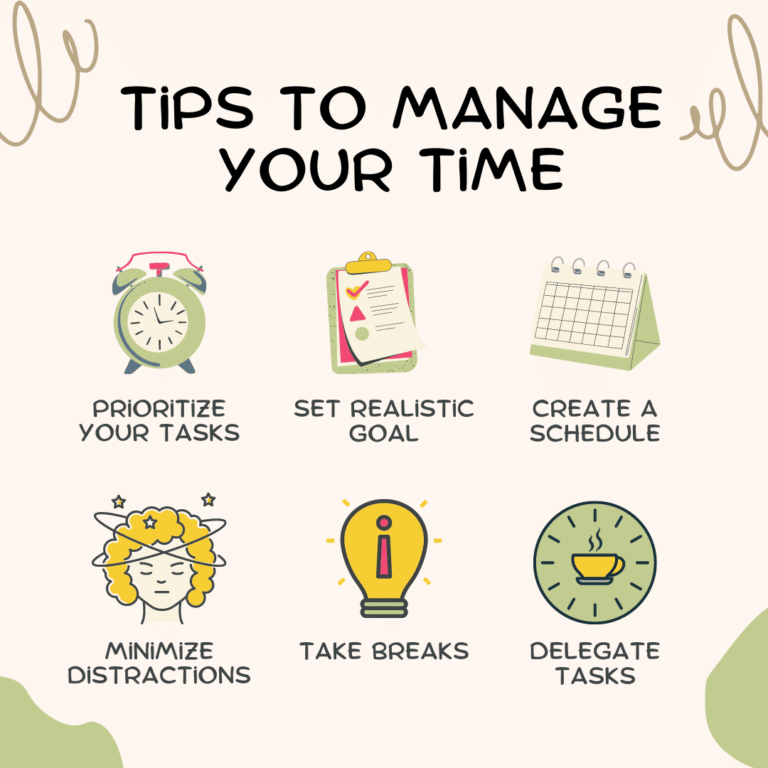Effective strategies of time management can help individuals prioritize their tasks, improve productivity, and achieve their goals.
By setting realistic goals, creating a schedule, minimizing distractions, and delegating tasks, individuals can better manage their time and make the most of each day.
- By implementing strategies of time management, individuals can make the most of each day and avoid feeling overwhelmed.
- The best strategies of time management are those that are tailored to an individual’s specific needs and work style.
- Whether you are a student, professional, or busy parent, mastering the strategies of time management can help you achieve your goals and improve your quality of life.
Time management is the process of organizing and planning how to effectively allocate time for various activities in order to achieve maximum productivity. It is a crucial skill that can help you make the most of your time and achieve your goals. Here are some engaging strategies for time management that can help you take control of your schedule:
Table of Contents
TogglePrioritize your tasks
Make a list of your tasks for the day or week and prioritize them based on importance and urgency. This will help you focus on the most critical tasks first and prevent you from wasting time on less important ones.
Set realistic goal
When setting goals, make sure they are achievable and realistic. Break down larger goals into smaller, more manageable tasks that can be completed in a shorter amount of time.
Create a schedule
Creating a schedule can help you manage your time more efficiently. Block out specific times for each task and stick to your schedule as much as possible.

Use a timer
Using a timer can help you stay on track and ensure that you are spending the appropriate amount of time on each task. Set a timer for a specific amount of time and work on the task until the timer goes off.
Minimize distractions
Distractions can significantly impact your productivity. Turn off notifications on your phone, close unnecessary tabs on your computer, and minimize other distractions that may interrupt your work.
Take breaks
Taking breaks is essential for maintaining productivity and preventing burnout. Take short breaks throughout the day to recharge your energy and refocus your mind.
Delegate tasks
If possible, delegate tasks to others to free up more time for important tasks. Delegating tasks can also help develop the skills of others and improve teamwork.
Learn to say NO
Saying no to non-essential tasks or requests can help you focus on more important tasks and manage your time more effectively.
In summary, effective time management requires prioritization, goal-setting, scheduling, minimizing distractions, taking breaks, delegating tasks, and learning to say no. By implementing these strategies, you can take control of your schedule and achieve your goals with maximum productivity.
Time Management for Mortals: The Ultimate Guide
“Four Thousand Weeks: Time Management for Mortals” by Oliver Burkeman is a fascinating and thought-provoking book that challenges readers to rethink their approach to time management.
Burkeman offers a wealth of insights and practical advice throughout the book, drawing on a range of sources from philosophy to neuroscience.
He challenges readers to question common time management techniques, such as setting SMART goals and maximizing efficiency, arguing that they can lead to burnout and an unfulfilling life.
One of the strengths of the book is Burkeman’s engaging and humorous writing style, which makes complex concepts and ideas easy to understand and relatable. He shares personal anecdotes and insights from his own life, making the book feel more like a conversation with a wise friend than a dry self-help manual.
Instead, Burkeman suggests that we should focus on living a life that aligns with our values and priorities, and accept the limitations of time. He offers a range of techniques for achieving this, from practicing gratitude and mindfulness to setting intentions rather than goals.
Overall, “Four Thousand Weeks” is an excellent read for anyone looking to rethink their approach to time management and live a more fulfilling life. It is a refreshing and insightful take on a topic that can often feel overwhelming, and is sure to inspire readers to make the most of the time they have.



